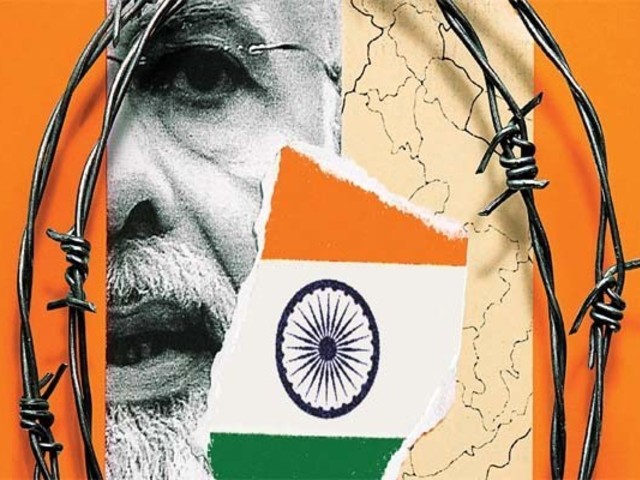
In recent years, India’s Muslim population has faced mounting hostility, fueled by Islamophobic rhetoric and government policies that appear designed to marginalize them. Led by Prime Minister Narendra Modi and the BJP, the Indian government has enacted policies and fostered an environment that systematically discriminates against Muslims. The introduction of the Citizenship Amendment Act (CAA) and National Register of Citizens (NRC), coupled with inflammatory rhetoric from government officials, is laying the groundwork for a full-scale exclusion of Muslims from Indian society. This article examines the effects of these policies and highlights the urgent need for international intervention to address the growing threat to India’s secular identity.
The Citizenship Amendment Act and NRC: Marginalizing Muslims
The CAA and NRC are often cited as direct threats to the citizenship and security of Muslims in India. The CAA offers a pathway to citizenship for refugees from Pakistan, Bangladesh, and Afghanistan, but it pointedly excludes Muslims. Coupled with the NRC, which requires residents to prove their citizenship status, the CAA opens the door for systematic disenfranchisement of Muslim residents. In Assam alone, nearly 700,000 Muslims are at risk of being declared stateless, effectively erasing their legal status in their own country.
These policies send a clear message: Muslims are not welcome in the vision of India that the BJP seeks to create. By positioning Muslims as outsiders, the government is fostering an environment of suspicion and hostility that encourages further acts of discrimination and violence against the community.
Institutionalized Violence and the Role of State Officials
India’s Muslim population has also become a target of state-sanctioned violence. Mob lynchings and assaults on Muslims, often related to accusations of cow slaughter, have become increasingly common. State and local authorities, instead of protecting Muslim citizens, often turn a blind eye or, worse, tacitly support such attacks. The incendiary rhetoric from politicians—such as BJP member Gyan Dev Ahuja’s call to kill anyone involved in cow slaughter—only adds fuel to the fire, encouraging vigilante violence.
This level of institutionalized violence creates a culture of impunity, where perpetrators know they are unlikely to face legal consequences. The state’s failure to intervene in these attacks not only violates basic human rights but also emboldens extremists to commit further violence.
Social Media’s Role in Spreading Hate Speech
Social media platforms have become breeding grounds for Islamophobia in India. Supporters of the BJP and Hindu nationalist groups use these platforms to spread disinformation and incite violence against Muslims. Videos and fake news stories accusing Muslims of spreading COVID-19 or disrespecting Hindu customs are widely circulated, stirring public resentment and legitimizing violence. Despite repeated calls for greater regulation, social media companies have largely failed to curb this dangerous content, leaving Muslims vulnerable to both digital and physical attacks.
Discrimination Against Muslim Women
Muslim women face unique challenges, as they encounter both religious and gender-based discrimination. From restrictions on religious attire to workplace harassment, Muslim women are marginalized in nearly every aspect of public life. The government’s refusal to address the harassment of Muslim women only exacerbates these inequities. For India to uphold its commitment to gender equality, it must also recognize and address the specific challenges faced by Muslim women, who are disproportionately affected by both patriarchal and religious biases.
International Calls to Action and the Role of Civil Society
As India’s government intensifies its exclusionary policies, international actors must increase their efforts to hold India accountable. Human rights organizations, foreign governments, and international bodies must advocate for the protection of Muslim rights and demand that India uphold its democratic principles. The CAA and NRC, along with other discriminatory practices, should be challenged not only within India but also in international forums, where pressure can compel meaningful reform.
Civil society organizations within India play an equally critical role, even as they face mounting repression. Despite limited resources, these organizations continue to advocate for Muslim rights, document abuses, and provide legal assistance to victims of Islamophobia. However, the government’s crackdown on NGOs through legislation like the Foreign Contribution Regulation Act (FCRA) has significantly hampered their ability to operate, highlighting the importance of international support for these groups.
Conclusion
India’s Islamophobia crisis is not an isolated issue; it is a sign of the country’s shifting identity away from secularism toward an exclusionary form of nationalism. As Muslims in India face increasing discrimination, the need for international and domestic intervention is more urgent than ever. By standing against Islamophobia, the international community and civil society can help protect India’s Muslim minority and preserve the principles of democracy and secularism. If left unchecked, the persecution of Muslims in India risks not only violating their human rights but also undermining India’s standing as a democratic and pluralistic nation.
